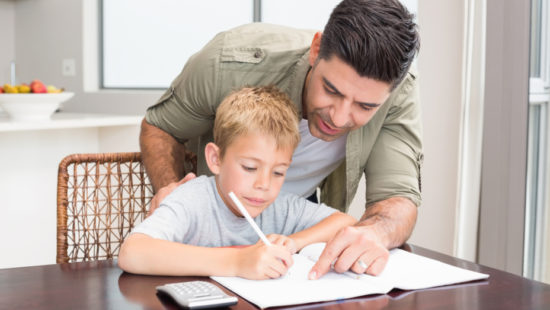Healthy parent-child relationships
Did you have a good childhood? The answer depends on your parent-child relationship. Parents who are open, communicative and supportive have positive effects on their children. Those who are stressed, angry and impatient can have long-lasting negative effects.
If you’re wondering how to have a good relationship with your child, you’re likely aware of the impact you can have on your own children – and you want to make it a good one. It’s time to do some soul-searching and learn the best parent-child communication tips.
Why the parent-child relationship is essential
The parent-child relationship is one of the strongest human bonds. It’s our first relationship and the most dependent – babies are entirely reliant on their parents. As we grow, parents teach us everything we know, for better or worse. We all crave parental love as children and do what we think we must in order to earn it. This is how we form beliefs about ourselves and the world.
Science proves the importance of the parent-child relationship. In babies, physical touch and loving bonds are vital to proper development and socialization. For adolescents, studies have shown that a healthy parent-child relationship can result in better mental and emotional well-being as well as improved behavior and adjustment – plus a greater sense of belonging.
When the parent-child relationship doesn’t fulfill our physical, emotional and mental needs, we begin to develop limiting beliefs. We might think we don’t deserve love if our caretakers are distant and unloving. We may develop a need for perfectionism if our caretakers demand it. These limiting beliefs stay with us for life – until we do the work of overcoming them. That’s why it’s always best to learn how to have a good relationship with your child from the start and provide a loving, supportive environment.
How to have a good relationship with your child
Like everything in life, a healthy parent-child relationship starts with the only thing you can control: yourself. When you work to be the best version of yourself, being a good parent will naturally follow.
1. Examine your own limiting beliefs
Our beliefs are the facts that we accept to be true about ourselves and about the world around us. They don’t just affect our decisions – beliefs create our entire world. As a parent, you will pass them on to your children, whether you want to or not. It’s crucial to examine your own limiting beliefs, learn how to interrupt any negative self-talk and replace it with empowering thoughts and actions.

2. Determine your values

Your values are the principles that mean the most to you in life – traits like loyalty, creativity, independence, honesty and compassion are all powerful values. You’ll also pass them along to your children, so it’s important to determine your values and strengthen them. Then look into parent-child communication tips to make sure you’re imparting your beliefs and values in a positive way.
3. Learn about the Six Human Needs
As humans, we are all driven by Six Human Needs: certainty, significance, variety, connection, growth and contribution. Even children share these needs – especially certainty, significance and connection – and when they are not met, the parent-child relationship suffers. Make sure you’re addressing these needs in your child through physical touch, loving words and constant communication about how much they mean to you.

4. Master your emotions

Controlling your emotions isn’t just one of the top parent-child communication tips – it’s critical to every aspect of your life, from excelling at work to building lasting romantic partnerships. When we learn to control our emotions instead of letting them control us, we’re able to tackle tough parenting situations with clarity and calm. We’re able to make better decisions. And we don’t pass on our negative tendencies to our children.
5. Forgive yourself
If you’re asking yourself how to build a trusting relationship with a child, you’re already showing that you care deeply about how you affect the lives of those around you. But we are all human after all. If you make a mistake, forgive yourself. Remember what Tony says: “No matter how many mistakes you make or how slow you progress, you are still way ahead of everyone who isn’t trying.”

Parent-child communication tips
You may have noticed a pattern above – communication is key to healthy parent-child relationships. To truly discover how to have a good relationship with your child, you’ll need to work on these skills.
• Listen first
Communication isn’t just about talking. Deep listening is an important part of communication. When you listen first, you can better respond to the problem in a way that your child will understand and respond to.
• Unlock communication styles
Everyone has a different communication style. One child will prefer to talk things out, while another will be more introverted. Don’t force your child to adopt a different style – instead, adapt your own style to theirs. You’ll communicate better than you thought possible.
• Don’t forget nonverbal communication
The parent-child relationship suffers when the child thinks their parents are not involved or do not care. Put your full focus on your conversation using nonverbal communication: make eye contact, use an open posture and nod and smile.
• Ask the right questions
When you do respond to your child, make sure you ask questions wisely. Help them learn how to problem solve by asking clarifying questions. Help them learn emotional literacy by asking them how situations make them feel. Draw out more details of a story to get at what’s really going on.
• Say “I love you”
This one seems obvious when it comes to how to have a good relationship with your child, but we often forget to say it at the most crucial moment: during arguments. The saying “Don’t go to bed angry” applies to the parent-child relationship as well. Make sure that your child knows you love them unconditionally, especially at moments of conflict.
Ready to learn how to build a trusting relationship with a child?
A healthy parent-child relationship starts with you. Learn how to overcome your own limiting beliefs today – and avoid passing them on to your child.